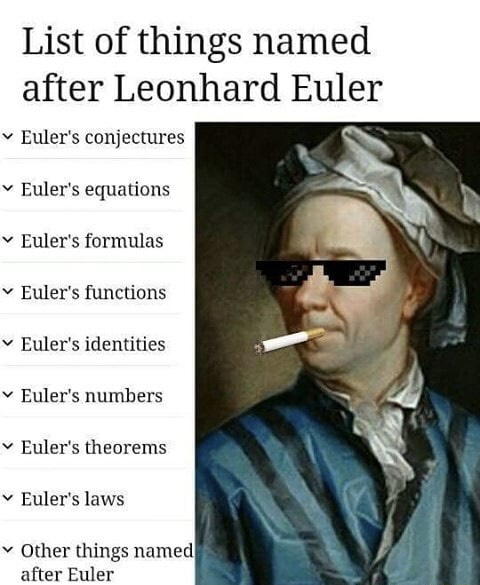Resolves on the date after the first viable proof of the Riemann hypothesis is presented and accepted. Until then, a healthy discussion is appreciated.
People are also trading
Some outside arguments:
for von Neumann: Many great mathematicians are brilliant minds who encounter just the right problem. We can (reductively) separate progress in a mathematical field into inception, middle, and capstone. As suggested by this titling scheme, the former and latter can be done by a single person - a visionary who sees the right thing from the right angle can have an insight that births a whole field, i.e. Eilenberg and Mac Lane with category theory, Grothendieck with topos theory, etc. On the other hand, a mathematician particularly suited to an existing field can master all tools crafted by those who came before them and use them to build a crown jewel, a la Godel or Wiles. But "middle" cannot be meaningfully done by a single person - this is the 20-200 year period full of partial progress, abortive attempts, tiny little inches of progress, building a toolset that will eventually be wielded by a great mind when enough pieces have been gathered for real progress to happen. It's impossible for a single person to do all this work. Well, almost impossible. von Neumann basically did it for functional analysis. He never found his great problem, but he did complete what should have been a multiple-decade research program for dozens of mathematicians largely on his own. There have probably been greater mathematicians, but never such an efficient mathematical workhorse. (And of course his broad contributions carry a similar flavor.)
for Brauer: This doesn't have such a concrete formulation, he was just unbelievably ahead of his time. We still don't fully understand why Brauer characters for representation theory in positive characteristic work - we can explain it and prove it, but the geometry is incredibly complicated. He seemed to do and see everything from a much further distance than seems possible to me. Really there's not a strong argument here, he's not the greatest mathematician of all time, but the gap between the amount of attention he gets from non-mathematicians and the depth, originality, and importance of his mathematical work is arguably the biggest.
I don't really believe these arguments but I think they're interesting.
@speck in terms of aheadness-of-his-time, Archimedes wins hands down (and even more so as a physicist than as a mathematician)
Popularity contests are not betting markets...
@ArmandodiMatteo : but the question says it is resolved after a viable proof of the Riemann hypothesis is presented?
@LeonLang I'm currently working on the assumption it's gonna resolve to a poll, but I might be wrong
@JimAusman dude thought women were subhuman and mice were spontaneously generated from hay, greatest mathematician here could be referring to greatest person who was a mathematician not necessarily person who was greatest at being a mathematician
@sixtynine do you want to extend the close date by a few years? The Riemann Hypothesis remains unproven.
Poincare, Riemann, Laplace, and Von Neumann were all undervalued here. But Gauss and Euler are the standard answers. Euclid, hard to know what mathematics he actually developed. Moreover, while he is known for the idea of establishing all of mathematics from a few axioms, many of his arguments were not rigorous, so this was only an aspiration.
@HarrisonNathan He basically established the formal idea of a mathematical proof as we understand it today and founded axiomatic geometry. It's hard to think of a more fundamental contribution to math than that coming from a single person (although Pythagoras deserves some credit here as well).
Note that most mathematicians were not rigorous by today's standards. The definition of limit was formalized by Cauchy and Weierstrass eg, a century after Newton died. And the set theoretical foundation of mathematics is very modern - early 20th century iirc


